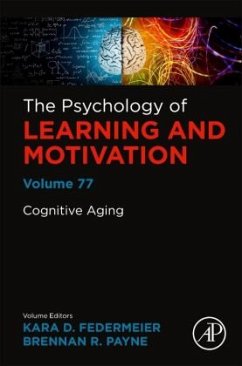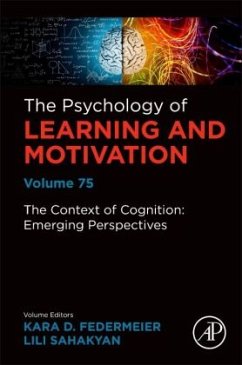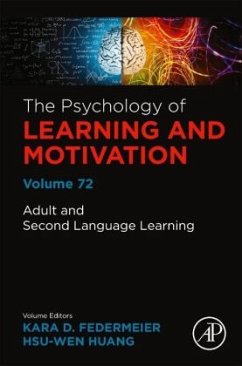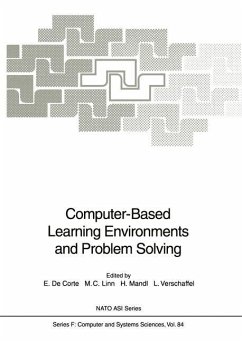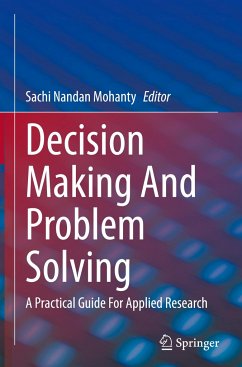
Problem Solving as a Process of Goal-Derived, Ad Hoc Categorization
Versandkostenfrei!
Versandfertig in 6-10 Tagen
39,99 €
inkl. MwSt.

PAYBACK Punkte
20 °P sammeln!
Theories of problem solving have examined a varietyof strategies through which individuals reachsolutions to different problems. Problem-solvingresearchers approach solvers success with a problemeither as the result of special thinking processes oras the product of ordinary cognitive processes likecomprehension and memory. Despite their focus on theconstruction of effective solution strategies,however, current problem solving and creativitytheories have not adequately examined how thesolver s knowledge and experience are implicated inthe formation and implementation of those strategies.This bo...
Theories of problem solving have examined a variety
of strategies through which individuals reach
solutions to different problems. Problem-solving
researchers approach solvers success with a problem
either as the result of special thinking processes or
as the product of ordinary cognitive processes like
comprehension and memory. Despite their focus on the
construction of effective solution strategies,
however, current problem solving and creativity
theories have not adequately examined how the
solver s knowledge and experience are implicated in
the formation and implementation of those strategies.
This book argues that the structure and function of
the individual s conceptual system is a crucial
aspect of problem solving. In particular, this work
presents theoretical and empirical accounts regarding
the flexibility with which individuals perform
numerous categorizations when constructing plans for
action, which could provide a valuable model for
explaining problem-solving phenomena. Thus, this book
approaches problem solving as a dynamic expression of
goal-directed cognition.
of strategies through which individuals reach
solutions to different problems. Problem-solving
researchers approach solvers success with a problem
either as the result of special thinking processes or
as the product of ordinary cognitive processes like
comprehension and memory. Despite their focus on the
construction of effective solution strategies,
however, current problem solving and creativity
theories have not adequately examined how the
solver s knowledge and experience are implicated in
the formation and implementation of those strategies.
This book argues that the structure and function of
the individual s conceptual system is a crucial
aspect of problem solving. In particular, this work
presents theoretical and empirical accounts regarding
the flexibility with which individuals perform
numerous categorizations when constructing plans for
action, which could provide a valuable model for
explaining problem-solving phenomena. Thus, this book
approaches problem solving as a dynamic expression of
goal-directed cognition.





